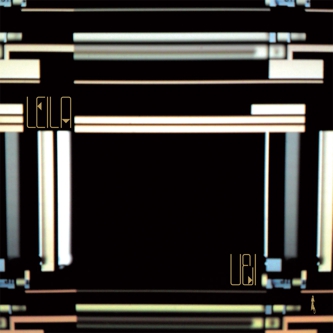Iranian-born Leila Arab has operated within a firmly independent niche of electronic artistry since 1998. Making her musical debut playing live (keyboards and vocals) with Bjork, and releasing her first LP on Aphex Twin’s Rephlex Records, she has since found a logical home on Warp. Crackling with emotional resonance and a subversive approach to formal arrangement – and using a very broad sound palette – her tracks tend toward the submerged and reflective. However, where previous outings have been somewhat pensive, this is a different proposition, abrasive, uncomfortable and obtuse, and shot through with skewed beauty.
The IDM boom of the mid-to-late 90s offered a logical counterbalance to an electronic mainstream in thrall to the ghoulish spectres of superclub/DJ, serious money and bloated excess. In dance music, the 80s happened in the 90s. Indeed, at that time artists such as Leila stood out amongst a blitzed landscape of generic rigidity. Now, with multifarious electronic artists the norm and the very concept of genre semi taboo in certain circles, this is no longer really the case. The very term ‘IDM’ now seems redundant and rather twee.
With hard-edged musical distinctions reduced to so much rubble – and a market crowded like never before with wilfully diverse beats – these are lean times for artists whose stock in trade has always been eclecticism. This is not to say that Leila’s music sounds less interesting than before. But in a landscape that has, in a few short years, given birth to idiosyncratic artists at a rate of knots – Actress, Mount Kimbie, Shackleton, Machinedrum, Ital and Kassem Mosse, for example – it certainly sounds safer.
Opener ‘Of One’ combines deep atmospherics with test card frequency manipulation, creating a relatively serene minute before ‘Activate I’ combines staccato electro bass with a fierce stepping, militarised beat. The stuttering chopped vocals create a discordant punk energy, perfectly offset with trill synth. Third track ‘All Of This’ is somewhat drab by comparison, with groggy bass underpinning a sombre vocal from Mt Sims.
Perhaps most immediate is ‘Welcome To Your Life’ – a great subversive pop song, propelled by that hard steppers beat again, only this time layered with some fine chopped break work, as Mt. Sims repeats “Seeing without your eyes for the first time! Welcome to your life again!”
Another affecting piece is the moving, childlike, melody of ‘Eight’, which offers respite from the LP’s noisier extremes. Resplendent with a richly satisfying 80s Lynchian sonic sheen, you can almost see the white paint on the picket fence. The only complaint here is the length; its scant three minutes could happily have been looped for eight.
The album’s latter half, though, does not maintain its early momentum. The electro-by-numbers of ‘Boudica’ would not have sounded out of place on Ed Banger circa 2005 – never a good thing – while ‘Interlace’ is made up simply of derivative white noise.
Mt. Sims lends his vocals to a majority of the tracks. His voice veers from distorted spoken word passages to a tremulous mournful tenor. At best, as on ‘All Of This’ he sounds weighty and authoritative. On other tracks, though, his delivery is too stilted for his tumultuous surroundings. The caustic ‘Collony Collapse Disorder’, for example, cries out for some vocal grit to match the volleying chaos of distorted reece stabs and pounding kicks.
But while there are undoubtedly a number of interesting tracks here, it is debatable how well they work together. With judicious editing U & I could have made a truly killer EP. As an album, however, it’s hindered by a proliferation of ponderous filler. And although there is some really vital material on display, it suffers the misfortune of being born into an electronic landscape that is currently trading on an uncommonly high bar.


